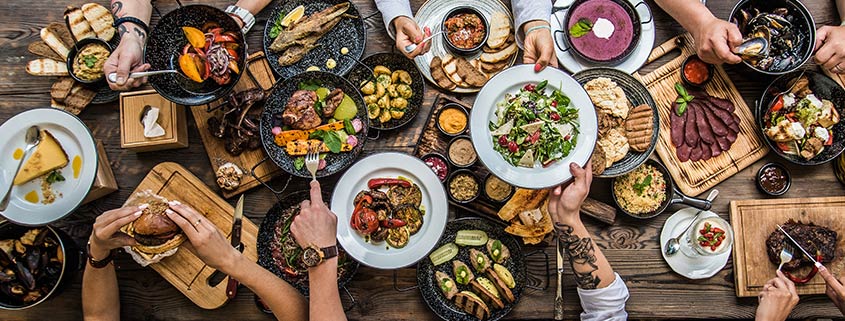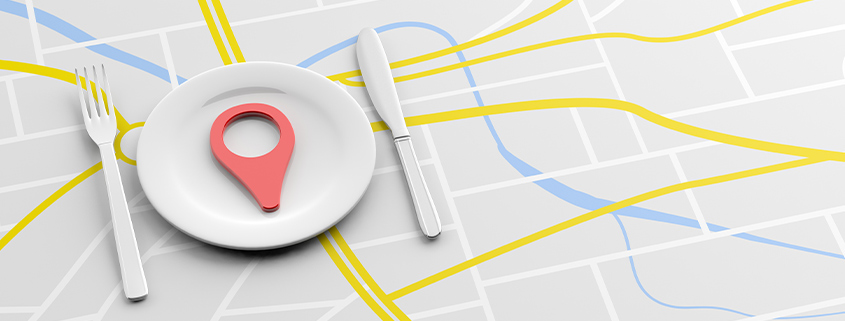Starting your own restaurant in the current scenario can be both terrific and risky. While there is never a stop to eating, the number of restaurants open to cater to diners are high enough to make them seem untrackable.
The only way to truly make your establishment different from the rest is in your choice of cuisine. The restaurant cuisine type can determine whether people would frequent your restaurant and favour it over the rest.
Before you choose a random and rare type of cuisine, remember that your choice of cuisine will also determine your profits.
What must you consider when choosing your restaurant cuisine?
While starting your own restaurant comes with its difficulties, choosing the right cuisine is no walk in the park either. There are a number of things to be considered that help you understand the pros and cons of every decision and make a prudent choice.
Here are the factors you must keep in mind:
1. Think Before you Make Choices

When it comes to setting up a restaurant, following one’s passion is always the strongest of the reasons. Choosing a restaurant cuisine from hundreds of types of cuisines is no different. If you have the capital, there is absolutely nothing stopping you from offering a certain type of cuisine to your patrons.
However, make sure you narrow the option from among a list of cuisines that are practical, considering your experience and knowledge. A backup plan always helps, too! While you may be sure of going ahead with the cuisine of your choice, there a number of other factors to consider before you make the final decision.
2. Identify your Strengths
No one is better aware of your strong points than you. So, when you’re setting up your restaurant and deciding your restaurant cuisine, jot down all your strong points, from sourcing raw materials for cooking to negotiating prices and more. All of these can help you decide if a particular cuisine is the right one for your establishment.
Make sure that whichever restaurant cuisine you settle on and whatever dishes you add to your menu, you are expert enough to step in for your chefs and sous chefs in their absence. This way, you can also guide your staff and make sure there is order in your kitchen.
3. Calculate your Budget

Your budget is another crucial factor to be kept in mind while deciding on a cuisine. You can hardly choose one that requires items way beyond your budget. Calculate your funds, your expected expenses, and your potential income before finalising the restaurant cuisine type that’s best for you.
Imagine settling on seafood as your cuisine and not being able to afford the crustaceans and molluscs. Keep your budget as a top consideration before taking any step so your restaurant stays afloat no matter the season or economic condition.
Click here to read ‘How to run a tight budget restaurant?’
5. Keep the Location in Mind

Understand the implications of choosing a restaurant cuisine that has not been encountered by people before. Considering the amount of money people spend dining at a restaurant, they are less likely to opt for dishes that they have never heard of or tried before.
The location of your restaurant is vital in deciding the type of cuisine you should opt for. In an area where other restaurants are serving exquisite or international cuisines, you needn’t fear the repercussions of choosing what you wish to for your restaurant.
In case your restaurant is located in an area that sees patrons that stick to safer choices in food, it is best to lean towards something that is preferred by a larger portion of the crowd.
6. Map your Competition
When you consider the various types of cuisines on your list, make sure you also take note of your competitors. The higher the number of competitors in the vicinity of your establishment, the lesser your chances of being frequented by people.
If you choose a cuisine type that is relatively common, add in a little something that is exclusive to your establishment and cannot be found anywhere around. This will be enough motivation for people to visit your restaurant.
However, going or something that is less common but popular nonetheless is sure to give you an edge over other restaurants and have curious diners coming over for a bite.
7. Understand your Audience
Understanding your audience is equally important when you plan on choosing a cuisine for your restaurant. Find out who your audience would be and their preferences. If you wish to go with a pan-Asian theme for your cuisine, visit a few pan Asian eateries within your restaurant’s vicinity. Make note of what they like and do not like about the place.
Another way to identify the tastes and preferences of your audience is to check the genuine reviews posted by patrons on the pages of your competitors. This way, you know exactly how soupy they prefer their noodles to be and how much spice they like in their Malaysian cuisine.
Click here to know how to trarget customers for your restaurant.
8. Take Recommendations from Trusted Advisors
Confiding about your plans of deciding on a restaurant cuisine type for your establishment with your closest friends and associates is the perfect way to get the right suggestions. These people will never steer you wrong and will give you just the recommendation you need, along with a strong reason as to why they recommend it.
So, while you are doing your little research, they can help you by conducting one of their own that goes over the pros and cons of each. After all, ten people’s experience is better than just your own to identify people’s interests and preferences.
While you are free to decide on a restaurant cuisine of your preference, make sure you keep these factors in mind before making your final decision from among the countless types of cuisines in the world.

